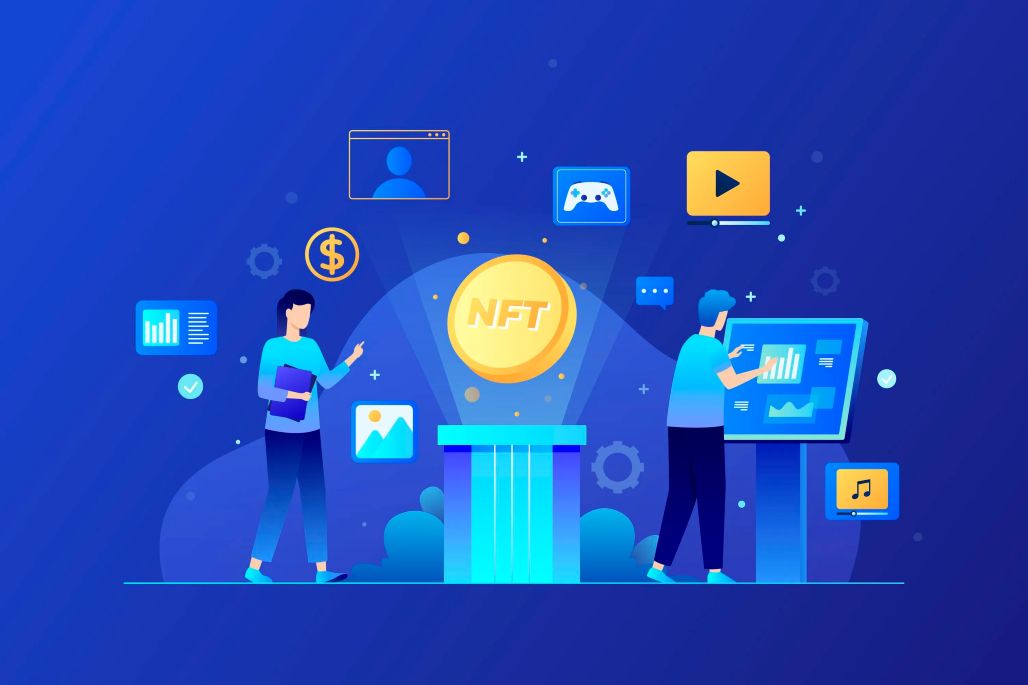In the rapidly evolving world of financial technology, compliance has emerged as both a challenge and an opportunity. As regulators tighten their grip and new innovations reshape how people transact, fintech companies find themselves balancing innovation with accountability. Fintech compliance is no longer just a regulatory obligation—it has become a strategic advantage for firms aiming to win consumer trust, manage risks effectively, and secure long-term growth.
However, achieving this requires more than just ticking boxes or relying on outdated practices. Training teams to navigate new frameworks, stay audit-ready, and respond quickly to regulatory changes demands a smarter, more agile approach. That’s why many organizations are turning to AI-powered compliance training platforms like Calibr, which deliver scalable, personalized learning without slowing innovation. With tools like Calibr Learn, fintechs can equip employees with real-time updates, adaptive learning paths, and interactive modules that make compliance training both effective and engaging.
To see how Calibr can future-proof your compliance programs, visit our website or contact us for more details.

Why Compliance Defines the Future of Fintech
The future of fintech is tied closely to compliance because trust is the foundation of every financial interaction. Customers today want not just speed and convenience, but also security and transparency. According to EY’s Global Fintech Adoption Index, more than 64% of global consumers now use fintech services, meaning any compliance lapse affects millions instantly.
Regulators, on the other hand, are under pressure to protect financial systems from fraud, money laundering, and systemic risks. For instance, the Financial Action Task Force (FATF) notes that illicit funds continue to make up a significant share of the global financial system.
This dual pressure means that fintech firms can no longer treat compliance as a checkbox activity. Instead, it has to be integrated into product design, employee training, and customer onboarding processes. The firms that succeed in building compliance into their DNA will stand out as leaders in a highly competitive marketplace.
The Evolving Landscape of Fintech Regulations
Regulations around the world are rapidly evolving to address the unique risks fintech brings. From digital banking and payments to crypto trading, regulators are issuing fresh guidelines that affect startups and established firms alike. Adhering to fintech compliance regulations protects companies from fines and reputational damage.
United States: The Consumer Financial Protection Bureau (CFPB) and Office of the Comptroller of the Currency (OCC) are tightening oversight on bank-fintech partnerships, particularly around lending and consumer protection.
Europe: The Markets in Crypto-Assets Regulation (MiCA) is the EU’s first comprehensive framework for crypto assets, demanding stricter licensing and disclosures.
Asia-Pacific: Countries like Singapore and Australia are leading with regulatory sandboxes that allow innovation while maintaining guardrails. Singapore’s Payment Services Act is seen as a model for balancing innovation with consumer protection.
Companies that keep pace with these changes are more likely to attract investors and customers. Adopting modular platforms for fintech regulation adaptation enables firms to respond faster to new rules, update systems seamlessly, and stay compliant across jurisdictions. Those that fail to adapt face hefty fines and reputational damage. For organizations training teams globally, solutions like Calibr Content Hub offer a centralized resource library to update learning material as regulations shift across jurisdictions.
Why Risk Management Is Central to Compliance
Compliance and fintech risk management go hand in hand. Every innovative product—whether mobile wallets, peer-to-peer lending, or embedded finance—comes with inherent risks: data breaches, money laundering, or unfair lending practices.
Cybersecurity alone represents a huge risk. According to IBM’s 2023 Cost of a Data Breach Report, the global average cost of a financial sector data breach reached $5.9 million, the highest across industries. These breaches not only trigger regulatory action but also erode customer trust.
Effective risk management frameworks not only satisfy regulators but also reassure stakeholders that the company operates responsibly. Integrating fintech risk management with compliance training strengthens organizational resilience.Regular financial services compliance training ensures staff understand the latest rules and apply them consistently. Advanced analytics, AI-powered fraud detection, and automated monitoring tools are becoming essential. However, these tools must be complemented with employee awareness and training.
Here’s where Calibr’s real-time analytics in compliance training prove useful—companies can track employee progress, measure engagement, and demonstrate ROI to stakeholders and auditors.
Fintech Compliance Checklist: Building Blocks for Organizations

To manage the growing complexity of regulations, many companies rely on a structured fintech compliance checklist that acts as a foundation for governance. A detailed fintech compliance checklist ensures no critical steps are missed in policy implementation. While the specifics vary depending on geography and business model, the following building blocks are universal:
Robust KYC/AML processes: With regulators mandating strict due diligence, fintech firms need to continuously upgrade Know Your Customer (KYC) and Anti-Money Laundering (AML) protocols. The United Nations Office on Drugs and Crime estimates that up to $2 trillion is laundered globally each year (UNODC).
Data privacy and cybersecurity safeguards: : Compliance frameworks like GDPR and CCPA require fintechs to manage personal data responsibly, with breaches carrying heavy fines. In fact, IBM’s 2025 Data Breach Report found that U.S. firms faced all-time high costs of USD 10.22 million per incident (IBM).
Regular employee training and certification: Employees remain the first line of defense against compliance breaches, whether it’s mishandling sensitive information or missing a red flag in customer onboarding. Regular, role-specific training ensures employees are aware of the latest rules and can act responsibly in day-to-day operations. Platforms like Calibr Learn help deliver certifications and assessments, ensuring staff are not just trained but truly audit-ready.Financial services compliance training reinforces real-world application, bridging gaps between policy and practice.
Vendor and third-party risk assessments: Fintech companies rely heavily on third-party providers for APIs, payment gateways, and cloud infrastructure. Each partnership introduces potential vulnerabilities. A robust compliance program requires thorough due diligence and ongoing oversight of vendors, making sure external risks are managed as carefully as internal ones.
Ongoing monitoring and reporting: Compliance is not a one-off project but an ongoing responsibility. This means continuously tracking transactions, customer activity, and employee adherence to policies. Automated reporting tools can flag anomalies and help firms prepare for regulator inquiries. Real-time dashboards, like those in Calibr’s analytics suite, give compliance managers visibility into training completion and performance across the workforce.
Embedding these pillars into daily operations transforms compliance from a reactive function into a proactive strength. Microlearning modules offered by Calibr Learn break down these complex requirements into bite-sized, practical lessons, helping employees apply rules in real-world scenarios instead of forgetting them after a one-time workshop. Over time, this approach cultivates a compliance-first culture across the organization.
Discover how Calibr’s compliance training solutions can keep your fintech teams ahead of regulations—explore our platform today.
The Role of Technology in Fintech Compliance Solutions

Technology is no longer a “nice-to-have” in compliance; it’s a necessity. The speed at which fintech innovations emerge makes manual or paper-based compliance nearly impossible. Fintech compliance solutions powered by AI, automation, and advanced analytics are now central to reducing human error, streamlining audits, and keeping pace with rapidly changing laws.
AI also introduces new risks. A 2025 study found that 13% of breaches involved compromised AI models, and firms with high levels of unauthorized “shadow AI” saw breach costs rise by an additional USD 670,000 (ITPro). This underscores the need for technology-driven compliance training.
For example:
AI-powered learning systems like Calibr Learn personalize compliance training by assessing employee knowledge levels and tailoring modules to specific roles. Instead of every employee sitting through a generic three-hour session, a fraud analyst can focus on transaction monitoring rules while a customer support representative learns about data privacy protocols. This not only saves time but ensures higher knowledge retention.
Collaborative learning features allow compliance teams to simulate real-world cases, share experiences, and build collective intelligence. Imagine a scenario where employees across different regions work together on a mock audit case inside the platform. By engaging in discussions and problem-solving, they learn how regulations apply in practice, not just in theory.
Gamification tools—points, badges, leaderboards, and interactive challenges—transform compliance training from something employees “have to do” into something they “want to do.” When employees are motivated to complete modules, engagement rates rise, knowledge gaps shrink, and compliance culture becomes embedded across the organization.
Automation and reporting tools make audits far less stressful. Fintech platforms with audit readiness compliance capabilities ensure every regulatory update, record, and employee certification is automatically documented and accessible during inspections. Instead of manually compiling spreadsheets of who completed what training, compliance managers can generate instant reports showing completion rates, assessment scores, and knowledge gaps. Platforms like Calibr provide real-time analytics, giving leadership visibility into compliance readiness at any moment.
Firms that adopt these solutions now will be better positioned to handle the complexities of global regulation tomorrow. Technology not only strengthens compliance but also frees up human teams to focus on strategy and innovation—turning compliance from a burden into a growth enabler.
How Calibr Works in Practice
Imagine a fast-growing fintech company, FinNext, which just launched a digital lending product. Regulators recently introduced stricter rules on customer due diligence, and the compliance team is scrambling to train 500 employees across three regions. Traditional methods—PDF guidelines and one-off workshops—aren’t enough.
Here’s how Calibr steps in:
Onboarding with Microlearning: New hires at FinNext receive compliance modules broken down into short, interactive lessons. Instead of reading through a dense manual, they learn through gamified quizzes and scenario-based simulations.
Adaptive Learning Paths: A customer service rep in India and a product manager in London both need compliance training—but not the same type. Calibr’s AI customizes learning journeys for each role, ensuring time is spent only on relevant regulations.
Real-Time Analytics: The compliance manager can instantly see who has completed training, where employees are struggling, and whether the company is ready for an upcoming audit. With fintech platforms focused on audit readiness compliance, organizations can present verifiable proof of training completion and policy adherence at any moment.
Collaborative Learning: Teams can discuss tricky compliance cases within Calibr, building a shared culture of accountability rather than isolated understanding.
Within weeks, FinNext not only passes its regulatory inspection but also reports a 40% improvement in employee confidence about handling compliance-related queries. What seemed like a looming risk became an opportunity to strengthen trust—with customers, regulators, and investors alike—thanks to Calibr.
Want to see how Calibr can transform compliance training in your organization? Contact us for more details or sign up for a 14-day free trial to experience it firsthand.
Preparing for the Future of Fintech Compliance
As fintech continues to grow, compliance will only become more complex. Emerging areas such as decentralized finance (DeFi), embedded payments, and AI-driven credit scoring raise fresh questions for regulators. Understanding the future of fintech helps organizations anticipate regulatory trends and build proactive compliance strategies.
The QED-BCG Global Fintech Report 2025 reveals that while fintech revenues currently represent only 3% of global banking and insurance, they are growing at 21% annually, with 69% of listed fintechs now profitable (Economic Times). This growth trajectory makes compliance maturity more important than ever.
The firms that succeed will be those that:
Stay agile with compliance updates
Use technology-driven compliance solutions
Invest in continuous employee training
Prioritize transparency and ethical practices
For companies seeking to get ahead, integrating compliance training into every stage of employee onboarding and development is non-negotiable. Platforms like Calibr already serve financial services organizations worldwide, helping them deliver compliance training that is adaptive, accessible, and effective.
Investing in financial services compliance training equips teams to navigate emerging risks confidently.
Compliance as the Compass Guiding Fintech’s Future
The message is clear: the future of fintech rests on strong, forward-looking compliance strategies. In an industry defined by speed and innovation, compliance is no longer just about avoiding penalties or ticking regulatory boxes—it is about building customer trust, safeguarding innovation, and protecting the financial system’s stability.
Organizations that elevate compliance to a strategic priority will not only reduce risk but also gain a competitive edge. Embedding fintech compliance throughout product development and operations ensures teams act responsibly at every stage. When compliance becomes embedded in culture and operations, fintechs can innovate confidently, scale globally, and attract customers who value security and integrity as much as convenience.
This is where technology-driven compliance solutions make the difference. Platforms like Calibr Learn and Calibr Content Hub empower organizations to deliver personalized, role-specific training, provide centralized access to resources, and maintain audit-ready records at all times. By integrating AI-powered learning, microlearning modules, and real-time analytics, compliance programs transform from a burden into a business accelerator.
If your fintech organization is ready for future-proof compliance, now is the time to act. Explore how Calibr’s compliance training solutions can help you turn regulatory obligations into opportunities for growth, ensuring that compliance doesn’t slow you down—it propels you forward.
Sign up today for a 14-day free trial or schedule a demo to see Calibr in action.


